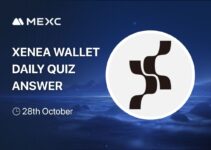As we approach 2025, the demand for privacy in digital transactions continues to grow exponentially. In this evolving landscape, Zerobase (ZBT) emerges as a pivotal player, merging advanced cryptographic technologies with blockchain to offer unprecedented privacy and security. This article delves into the intricate workings of Zerobase, exploring its technology, architecture, and the pivotal role of its native token, ZBT.

Understanding Zerobase (ZBT)
Zerobase is a decentralized platform designed to enhance privacy through the integration of zero-knowledge proofs (ZKPs) and Trusted Execution Environments (TEEs). This combination allows for secure off-chain computation while maintaining on-chain verification, a critical feature for applications requiring both privacy and transparency.
The Zerobase network facilitates several use cases such as zkLogin for privacy-focused authentication, zkDarkPool for decentralized trading, and zkStaking, which collectively provide scalable cryptographic proof services for developers and users alike.
Key Features of Zerobase Network
The architecture of the Zerobase network is built around a robust multi-Hub and Node model, ensuring scalability, efficiency, and fault tolerance:
- Node Partitioning and Hub Management: Nodes are allocated to Hubs using a consistent hashing algorithm in a virtual ring structure, optimizing workload distribution and network scalability.
- Virtual Nodes: To address potential load imbalances, each Hub is represented by multiple virtual nodes, ensuring equitable Node allocation across the network.
- Proving Nodes: These nodes handle the execution of zero-knowledge proofs within TEEs, secured by stablecoin collateral to ensure network performance and security.
- Hub Nodes: These nodes manage proof routing and bandwidth sharing, receiving rewards proportional to their contributions, without requiring collateral.
Privacy and Security Innovations
Zerobase’s commitment to privacy is evident in its handling of private inputs, which are processed within Trusted Execution Environments, ensuring they remain concealed from operators. This setup supports high-performance operations with minimal delays, crucial for real-time applications.
Practical Use Cases of Zerobase
Zerobase is not just a theoretical construct but a practical solution tailored to meet the needs of various stakeholders in the blockchain ecosystem:
- zkLogin: Enables secure user authentication on blockchain platforms using existing identity providers, without exposing sensitive personal information.
- zkDarkPool: Facilitates confidential trading on decentralized exchanges, protecting transaction details from exposure until trades are finalized.
- Zerobase Staking: Uses zero-knowledge proofs to maintain privacy over staking strategies while ensuring transparency and risk management.
The ZBT Token
The ZBT token is central to the operation and governance of the Zerobase network. With a fixed supply of 1 billion tokens, ZBT is used for accessing network services, incentivizing node participation, and facilitating governance voting.
- Token Supply and Allocation: The allocation strategy includes 20% to the team and advisors, 11.25% to investors, and significant portions reserved for growth initiatives and node staking rewards.
- Use Cases: ZBT tokens enable access to services like zkStaking and proof routing, with nodes earning ZBT for their operational contributions.
- Governance: ZBT holders have the power to vote on network upgrades, influencing the platform’s development and ensuring community-driven governance.
Zerobase (ZBT) and the Future
As blockchain technology continues to evolve, platforms like Zerobase are crucial for bridging the gap between privacy and transparency. By leveraging zero-knowledge proofs and TEEs, Zerobase provides a secure, scalable, and user-friendly environment for privacy-focused blockchain applications, setting a new standard for privacy and security in the digital age.
With its innovative approach and robust tokenomics, Zerobase is poised to play a significant role in the future of decentralized applications, particularly as global concerns around digital privacy and security continue to rise.
Disclaimer: This post is a compilation of publicly available information. MEXC does not verify or guarantee the accuracy of third-party content. Readers should conduct their own research before making any investment or participation decisions.
Join MEXC and Get up to $10,000 Bonus!
Sign Up


